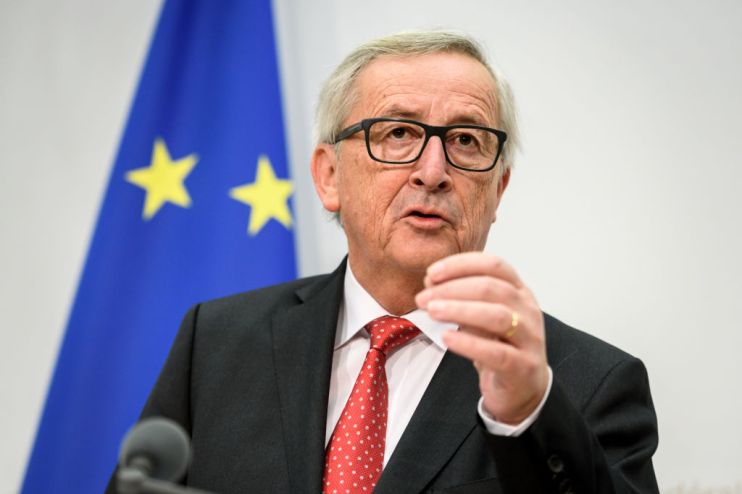EU agrees ‘largest ever trade deal’ with South American bloc after 20 years of talks

The European Union has agreed a free-trade deal with the South American bloc known as Mercosur, 20 years after negotiations first began.
EU commission chief Jean-Claude Juncker has labelled the agreement as the EU’s biggest deal to date, and claimed it shows “we stand for rules-based trade” at a time of conflict between the US and China.
Read more: Trump jokes to Putin: “Don’t meddle in the election, please”
“Mercosur trade deal done,” Juncker tweeted. “A historical moment. In the midst of international trade tensions, we are sending a strong signal that we stand for rules-based trade. Largest trade agreement [the EU] has ever concluded. Positive outcome for environment & consumers.”
The Mercosur bloc consists of Brazil, Argentina, Paraguay and Uruguay.
Venezuela is also a member but was suspended in 2016 for breaching the group’s standards.
Brazil President Jair Bolsonaro called it “one of the most important trade deals of all time”.
The deal will cut or remove trade tariffs, reducing the cost of imported products for consumers as well as boosting exports for companies on either side.
It will create a market for goods and services spanning around 800m people, making it the world’s largest in population terms.
“This is a landmark agreement,” EU trade commissioner Cecilia Malmstrom told reporters in Brussels. “They have been long negotiations, tough, difficult. And at least I have said many times ‘we’re almost there,’ and now we are.”
Discussions between the two blocs began 20 years ago to the day, but talks were fast-tracked following the election of Donald Trump to US President in 2016.
Read more: May tells Putin there can be no repeat of Salisbury attack
The EU has also reached agreements with Canada, Mexico and Japan since then, although this deal with Mercosur is expected to see tariff savings up to four times greater.
The drafted deal will still need fine-tuning over the next 6-12 months, before coming into effect provisionally. It could then take another year to gain approval from EU governments and Parliament.